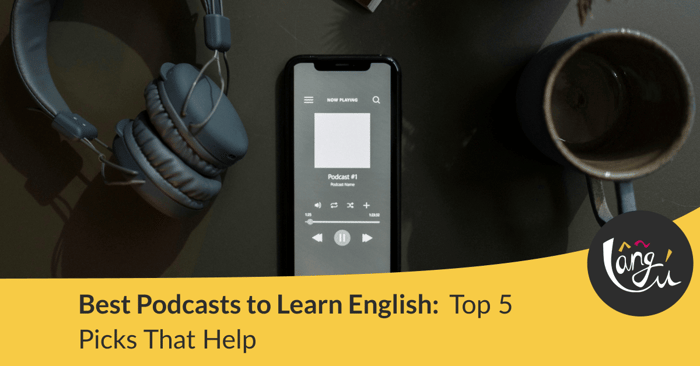Landing a job is tough. Landing it in another language? Even tougher. If you're preparing for a job interview in English, you already know it demands more than just memorizing answers. It takes strategy, confidence, and the right kind of preparation. Here’s how to make sure you don’t just survive the interview—you impress, connect, and get hired.
1. Understand the Format
Most English-language interviews follow a predictable structure: small talk, introduction, work experience, skills, situational questions, and a wrap-up. Knowing this gives you a roadmap to follow. It also helps you manage time and expectations during the interview.
Tip: Practice each section separately. Don't just rehearse answers—simulate real interview conditions.
2. Learn to Sell Yourself Clearly
The biggest mistake non-native speakers make is being too modest. In an English-speaking context, confidence and clarity are essential. You need to be able to describe your strengths, experience, and achievements without hesitation.
Use clear, active language. Instead of saying, "I helped in managing a team," say, "I led a team of five and improved our project delivery time by 20%."
3. Master the Most Common Questions
You don’t need to memorize answers word-for-word. But you should prepare strong responses to questions like:
Tell me about yourself.
What are your strengths and weaknesses?
Why do you want this job?
Tell me about a time you faced a challenge at work.
Why should we hire you?
Write out your answers, say them out loud, and adjust your language to be natural but professional. Keep your answers concise. Interviewers don’t want your life story—they want relevant details.
4. Work on Your Pronunciation and Fluency
A job interview in English isn't a language test, but clear communication matters. If your pronunciation makes it hard to understand you, it can hurt your chances.
Record yourself answering questions. Use free tools or apps that give feedback on your speech. Focus on clarity, pace, and intonation. Avoid speaking too fast to sound fluent. Aim to be understood.
5. Use the STAR Method
Behavioral questions are big in English-language interviews. These usually start with, "Tell me about a time when..." or "Give an example of..."
The STAR method helps you organize your answer:
Situation: What was the context?
Task: What did you need to achieve?
Action: What did you do?
Result: What was the outcome?
Practicing STAR responses improves both structure and confidence. It shows interviewers you can think critically and communicate effectively.
6. Be Ready for Cultural Differences
A job interview in English may include things that aren’t common in your home country. For example, American and British interviews often include more small talk at the beginning. You might be asked about your hobbies or weekend plans. It’s not a trap—it’s about seeing if you’ll fit in with the team.
Be polite, open, and professional. Smile. Make eye contact (if culturally appropriate). And prepare a few non-work topics to discuss if needed.
7. Ask Smart Questions
The interview isn’t just about them evaluating you. You’re evaluating them too. Ask thoughtful questions like:
What does success look like in this role?
What are the team’s biggest challenges right now?
What are the opportunities for growth?
Good questions show engagement and critical thinking. Avoid asking about salary or vacation unless the interviewer brings it up.
8. Practice With a Real Person
Practicing in your head or even in front of a mirror isn’t enough. You need real interaction to get better at handling a job interview in English. A professional English teacher or coach can give you feedback on grammar, vocabulary, and pronunciation. More importantly, they can challenge you with unexpected questions.
Try to simulate real conditions: dress the part, set a timer, and speak as if it’s the real thing. Ask for feedback and refine your approach.
9. Be Honest About What You Don’t Know
If you don’t understand a question, it’s okay to ask for clarification. Say something like:
“Could you please repeat that?”
“I’m not sure I understand the question. Could you explain a bit more?”
This shows maturity and communication skills. Don’t pretend to know something you don’t. Integrity matters.
10. Follow Up
Send a thank-you email within 24 hours. Keep it short, polite, and professional. Mention something specific from the interview and restate your interest in the role.
Example:
Dear [Interviewer’s Name],
Thank you for the opportunity to speak with you yesterday. I enjoyed learning more about the position and your team. I’m very excited about the chance to contribute to [Company Name] and believe my experience in [specific area] would make me a strong fit.
Best regards, [Your Name]
This small step can make a big impression.
Final Thoughts
Nailing a job interview in English takes more than just good grammar. It’s about confidence, clarity, and connection. You need to show who you are, what you can do, and why you're the right person for the job.
If you want to boost your chances, there’s no better way than practicing with a professional. Book a lesson with an expert English teacher who can help you prepare, polish your skills, and walk into your next interview with confidence. Head over to Langu and start getting ready the right way.
Book a Teacher for Interview Prep
FAQs
How can I prepare for a job interview in English if I’m not fluent?
Focus on learning key phrases, practicing common interview questions, and improving your pronunciation. Working with a professional English teacher can help you build confidence and fluency specific to a job interview in English.
What are the most common questions in a job interview in English?
Common questions include: “Tell me about yourself,” “What are your strengths and weaknesses?” and “Why should we hire you?” Preparing strong, structured answers will help you succeed in a job interview in English.
Is it okay to ask for clarification during a job interview in English?
Yes, it’s completely acceptable. Politely ask the interviewer to repeat or explain the question. It shows strong communication skills and professionalism during your job interview in English.




